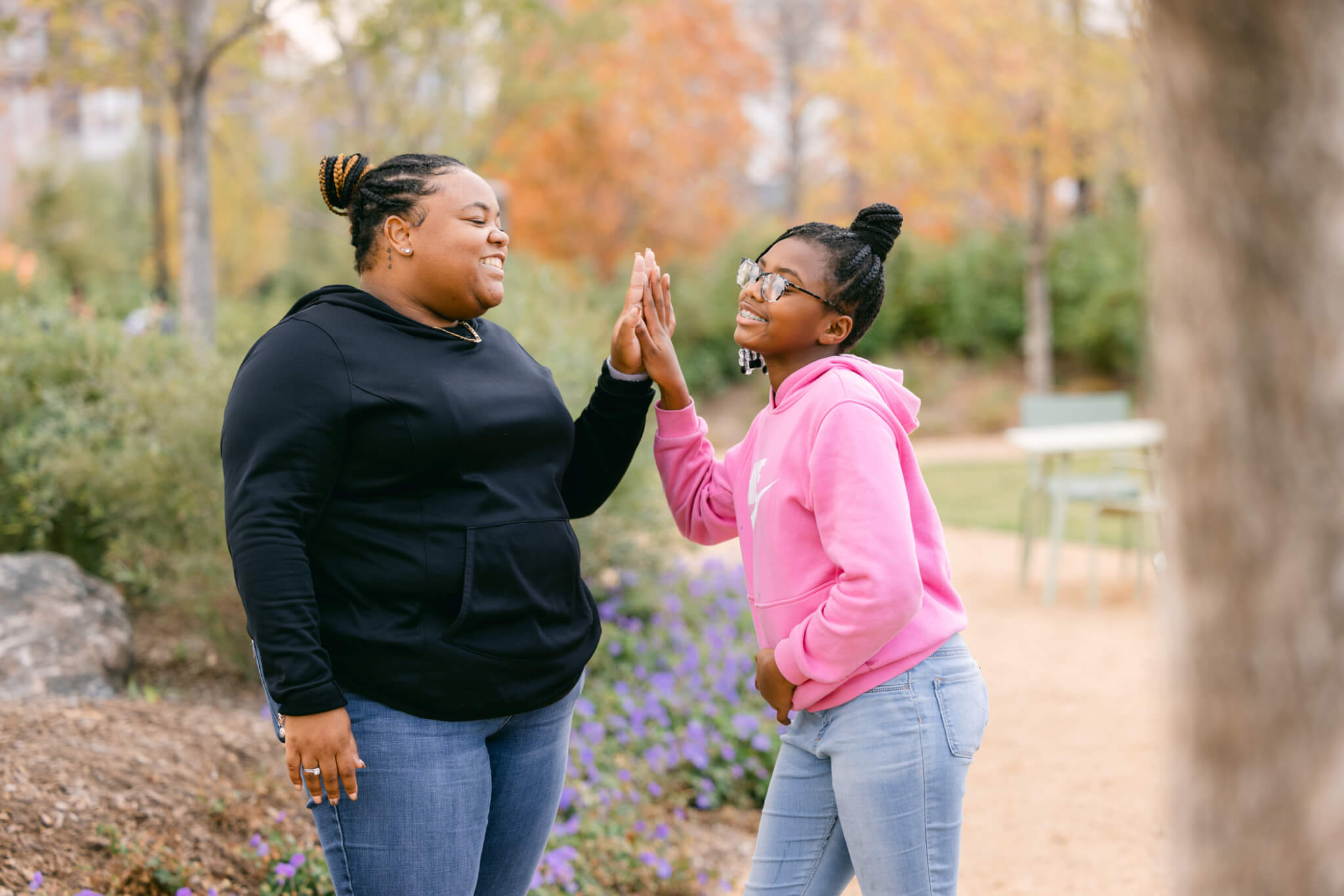How Mentoring Can Change Lives
In our recent study, Who Mentored You?, we wanted to develop a holistic understanding of mentorship throughout the last 50+ years – how different generations and demographics gain access to mentorship, where gaps exist and the reasoning behind them, and the tangible benefits people experience when they connect with meaningful mentors.

Answering this last question has its nuances. Most mentorship programs or relationships often emphasize short term outcomes that are easy to see in the immediate wake of program participation. For school-based programs, the emphasis is often on improved attendance and academics, forging stronger peer relationships, and decreasing negative behaviors and school disciplinary referrals. For older adolescents, the focus is often on graduating high school, applying to college, and figuring out possible career paths However, with this study, MENTOR was interested in the effects of mentoring relationships 10, 20, or even 30 years down the line. How has an individual’s life changed because of mentorship? How did that relationship help them thrive or give them wisdom they carry deep into their adulthood? And what kind of recognition do we give these mentors several decades on?
There is no perfect way to measure the long-term effects of mentoring relationships, but we asked respondents to reflect on how mentoring had helped them and how much their mentors were responsible for the people they are today. We discovered that 56% of our multi-generational survey group felt that their mentors had a direct effect on their success in life. More specifically, these Americans gave their mentors at least half the credit for their progression in life, a percentage share that increased significantly when the question was posed to youth from low-income and marginalized backgrounds and for youth who had four or more negative childhood experiences.
But why did these mentors have such a strong impact on the respondents? And what were the ways in which mentors provided support to young people?
What we found is that meaningful mentorship opportunities create an environment where people can feel supported, build their identity and sense of belonging, and get exposed to new ideas and new opportunities. We found strong correlations between having a mentor in childhood and reports of positive mental health and sense of belonging both in childhood and adulthood, compared to those who did not have a mentor. We also found that youth with a mentor were more likely to be engaged in positive extracurricular activities and leadership positions. We even found some hints that mentorship supported the upward economic mobility of youth from low-income homes. While our study did not definitively prove that mentoring was solely responsible for these differences, when you ask youth how their mentors helped them, a more complete picture of the value of mentors emerges .
Regardless of whether they had a naturally occurring or program-picked mentor, the most important forms of support to youth were helping to solve problems (49%), building a sense of belonging (48%), and helping to understand who they are as a person (45%).
These aspects of our research answer how mentorship affects youth well into adulthood, but it does leave out the how behind the progress. What makes a meaningful mentor? And what are the key attributes for a mentor to create these lasting changes in young people’s lives?
It mostly came down to how mentors supported youth throughout challenges and the respect embedded in the relationship. To be considered a meaningful mentor, we identified four prominent themes that stood out: 1) accepting youth for who they are, 2) listening carefully, 3) trusting them, 4) being patient, and 5) taking them seriously.
These findings illustrate the many ways in which mentors can help to support a young person – from a fostering a sense of belonging and supporting mental health, to academic achievement and community involvement, having a mentor can help guide youth towards a more positive adulthood. But more than anything, we see Americans of all ages appreciate their mentors for the impact that they had on their lives.
There is no greater praise for a mentor than to hear a person say, “I wouldn’t be the person I am today without their help.”
CTA 1: Download our full report for more insights into the effects of mentorship.
CTA 2: Donate to MENTOR to help us continue our mission to fuel the quality and quantity of mentoring relationships young Americans deserve.


